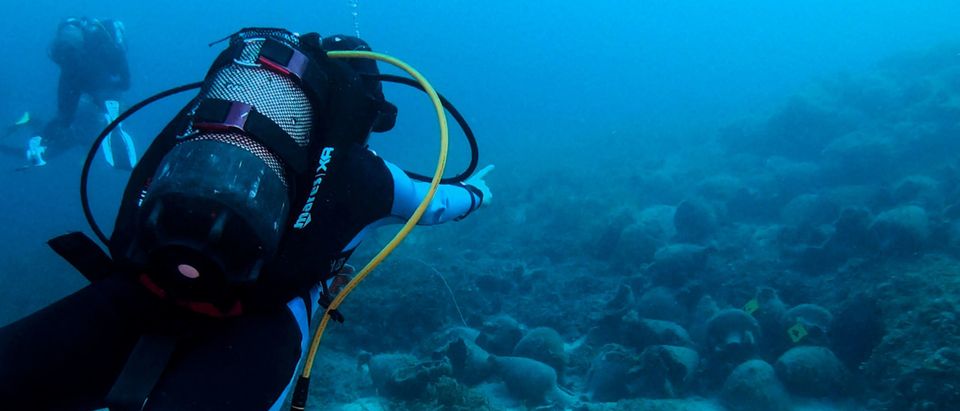Divers exploring a 2,000-year-old Antikythera shipwreck near Greece appear to have recovered the missing head of the Athens’ National Archaeological Museum’s marble statue of Hercules.
The statue itself was originally discovered by sponge divers in 1900 and now, according to University of Geneva archaeologist Lorenz Baumer, “in all probability we’ve found its head,” reported The Guardian.
“It’s a most impressive marble piece,” Baumer said, according to the Guardian. “It is twice lifesize, has a big beard, a very particular face and short hair. There is no doubt it is Hercules.”
The world’s oldest-known analogue computer was found among the shipwreck more than a century ago. https://t.co/kYR1kmvaPJ
— ARTnews (@artnews) June 22, 2022
A cargo ship dating from the Roman Empire, the Antikythera shipwreck was discovered accidentally more than 120 years ago. It is now regarded as the world’s richest ancient shipwreck, with recent explorations yielding more treasures including the Antikythera Mechanism – a device described by scientists as the world’s first analog computer, according to The Guardian. (RELATED: Marine Archaeologists Fine 2,400-Year-Old Shipwreck)
Excavating the site is difficult, though, requiring specially trained divers to work in unexplored depths of 50 meters, reported the Guardian. These latest excavations required the relocation of natural boulders, each weighing approximately 8.5 tons.
“It’s so deep they can only be down there for 30 minutes,” Baumer told the Guardian. “But now we have an idea of what has been hiding under those rocks … each find helps us piece together more context in our understanding of the ship, its cargo, the crew and where they were from.”
In addition to the marble head of Hercules, divers also discovered parts of the base of a marble statue, pieces of the ship’s anchor and two human teeth, reported the Guardian.
“You never know what archaeology will deliver tomorrow, but what we do know is that the Antikythera wreck is an extremely rich site, the richest in the ancient world,” Baumer concluded.


